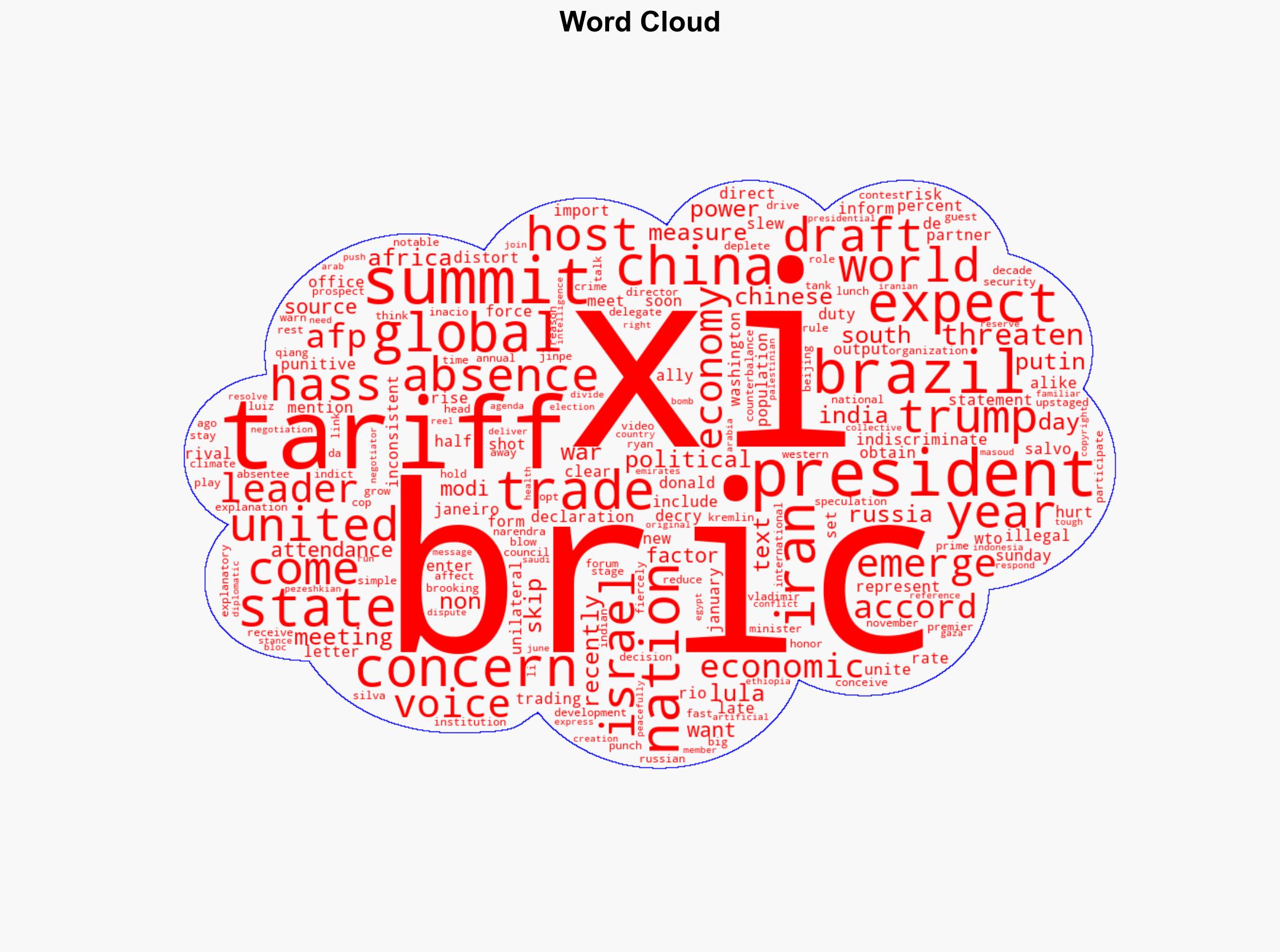BRICS Nations Voice ‘Serious Concerns’ Over Trump Tariffs – International Business Times
Published on: 2025-07-05
Intelligence Report: BRICS Nations Voice ‘Serious Concerns’ Over Trump Tariffs – International Business Times
1. BLUF (Bottom Line Up Front)
The BRICS nations have expressed significant concerns regarding the trade tariffs imposed by the United States under President Donald Trump. These tariffs are perceived as indiscriminate and potentially harmful to the global economy, particularly affecting emerging nations. The BRICS leaders, meeting in Rio de Janeiro, are expected to unite in their opposition to these measures, which they argue are inconsistent with World Trade Organization (WTO) rules. Key recommendations include diplomatic engagement to address trade imbalances and strategic alliances to counterbalance Western economic influence.
2. Detailed Analysis
The following structured analytic techniques have been applied to ensure methodological consistency:
Causal Layered Analysis (CLA)
At the surface level, the imposition of tariffs by the U.S. is a direct economic action. Systemically, it reflects a shift towards protectionism, challenging global trade norms. The worldview suggests a reassertion of national interests over multilateral agreements. The mythic layer portrays a narrative of emerging economies resisting Western dominance.
Cross-Impact Simulation
The tariffs could lead to retaliatory measures by affected nations, potentially escalating into broader trade conflicts. Economic dependencies among BRICS nations may be leveraged to mitigate impacts, but could also strain internal cohesion if interests diverge.
Scenario Generation
Scenarios include a diplomatic resolution with revised trade agreements, a prolonged trade war with significant economic repercussions, and a realignment of global trade partnerships excluding the U.S.
3. Implications and Strategic Risks
The tariffs pose risks of reduced global trade volumes, impacting economic growth prospects, particularly for emerging markets. There is a potential for increased geopolitical tensions as nations seek to protect their economic interests. The situation could exacerbate existing vulnerabilities in global supply chains and financial markets.
4. Recommendations and Outlook
- Engage in multilateral negotiations to address trade imbalances and reduce tariff impacts.
- Strengthen intra-BRICS economic cooperation to enhance collective bargaining power.
- Monitor global trade dynamics to anticipate shifts and adapt strategies accordingly.
- Scenario-based projections suggest a best-case scenario of diplomatic resolution, a worst-case scenario of prolonged economic conflict, and a most likely scenario of gradual realignment of trade partnerships.
5. Key Individuals and Entities
Donald Trump, Xi Jinping, Vladimir Putin, Narendra Modi, Luiz Inacio Lula da Silva, Masoud Pezeshkian
6. Thematic Tags
international trade, economic policy, global diplomacy, emerging markets





